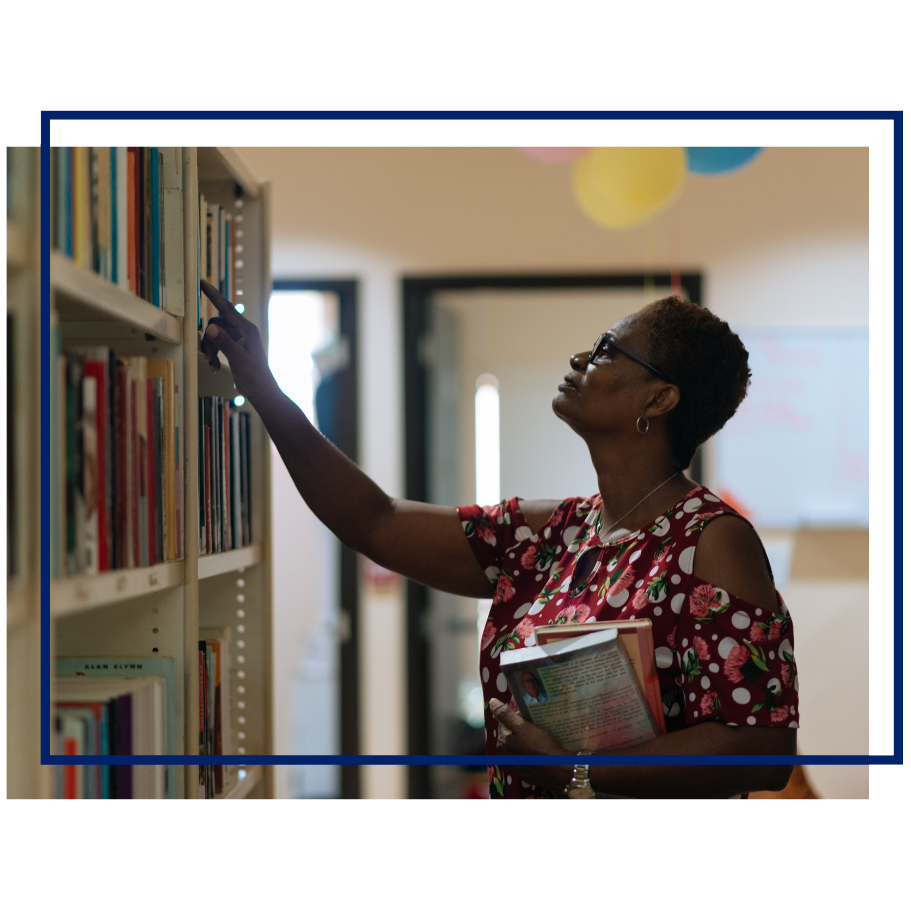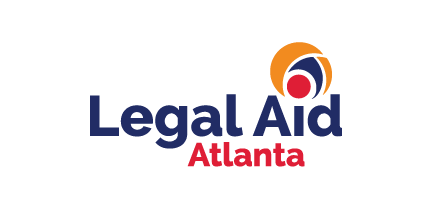From One Caregiver to Another: A Testimony of How We Got Through

When Dana A.H called Legal Aid, she was in the midst of a two-decade long fight for her grandson’s wellbeing. As Dana would tell me with a tired shake of her head, “Devon has been through a lot.”
Devon’s struggle began the moment he was born — prematurely, at only 1 pound and 16 ounces. Devon’s twin didn’t survive the birth, and Devon nearly didn’t himself. His first 6 months of life were spent in the NICU, in surgery after surgery to address issues because his organs were not fully developed.
Despite all the pain and struggle, Devon was lucky in one very important way: he had Dana as his grandmother.
When it was clear that Devon’s mother could not do what she needed to do to care for her child, Dana stepped in. Despite the fact that she was already raising two other children at home, Dana traveled to Columbus Georgia three times a week to visit her first grandson in the hospital. When she was finally able to take him home, his issues only seemed to worsen.
Dana recounts one scene in that first year that she says she can never forget: Waking up to someone tapping her shoulder in the hospital, to see only bright lights and white coats. Devon had contracted an infection and stopped breathing. The doctors told her he wasn’t going to make it. So Dana did the only thing she could in that moment: she prayed. She prayed that she would be allowed to bring Devon home, and that if this request was granted, she would do whatever she had to do to help him survive.
Devon got better. The two of them went home. But the struggles never seemed to let up.
“We grew up in church as a Methodist. Knowing that my faith, I had to believe in God and that if He would let me bring him home, I would do what I had to do to help him to survive. So that’s what I did.”
– Dana. Ah
For the first four years of Devon’s life, Dana had help through the program “Babies Can’t Wait”, which provides assistance for children who are developmentally delayed. But after Devon aged out of the program, Dana was left totally on her own.
“You get help from “Babies Can’t Wait” until they’re like four, but after that, it was on me. I was the nurse. I was the doctor too. And I had two younger kids at the time. We didn’t have anyone coming in to do anything. So we had to figure it out. We put our heads together to do what Devon needed. By the grace of God.”
– Dana A.H
In the beginning of Devon’s schooling, he received accommodations for his disabilities, which include cerebral palsy, a chronic lung disease, a cognitive impairment, and blindness. The school district sent professionals to help Devon. But over the years, this support seemed to dry up. Even though Dana knew that Devon was entitled to resources, it was exhausting to do the research and find the resources to support him.
But Dana was not deterred. As she said, “I just learned over the years that I’m determined to help him have what he needs. Devon didn’t ask to come into this world like this. So I would be less than a grandmother, a woman, a person, to allow him to go through a lot of unnecessary stuff that he shouldn’t have to deal with.”
Dana stumbled across an old pamphlet that had information about Legal Aid. At that time, Dana wanted to make sure she had Devon permanently in her home. She hit some road blocks, but Dana said, “I wouldn’t give up. I had the time. I would do the research. And I can have the resources he needs to strive and have a comfortable life. I cried, but I wouldn’t give up.”
Dana finally got through to Christina Scott, an attorney with our Health Law Partnership (HeLP). With the help of our Disability Integration Project, our team began investigating the best option for Dana and Devon. That’s when they proposed the idea of supportive decision making, which is a less-restrictive alternative to guardianship. This was a relatively new “tool” in HeLP’s toolkit so to speak, and Dana was really excited about the idea. She wanted to give her grandson all of the possibilities and opportunity for his life, and supportive decision making felt like a good fit.
With the help of a notary, the lawyers, the clients, and a witness, the team got on Zoom and were able to complete the whole process. Dana and Devon are our first clients to get this type of support!
Having the most important matter covered, the Legal Aid team probed deeper. Dana explained that the school was refusing braille education for Devon, because they had said in their notes that he was cognitively unable to learn braille. This left him functionally illiterate.
As Christina explained, “You don’t say to a child who can see but who is developmentally delayed, ‘Well, we’re just not going to try.’ But that’s what they told him.” So the team got to work to get braille education for Devon, including tools to use at home and education for Dana to learn how to work with him.
As a result of Christina’s advocacy, the team also added multiple therapies to Devon’s education plan when the school realized they were lagging in other places. Now he gets therapy for mobility, that helps him navigate the world safely, whether he’s walking or in his wheelchair.
If all of that wasn’t enough, Dana called back in October, needing help with a housing issue. She’d received a section 8 voucher back in March, which is a great feat as they are very hard to get. But because of the circumstances of the pandemic and being the sole caregiver for Devon, Dana was unable to find somewhere to move in time, and they were threatening to take her voucher away. She’d already received one extension on her own, but when Legal Aid intervened, Dana was able to get the maximum extension possible so that she can keep her voucher and have more time to find some place to move.
Today, Devon and Dana are doing well. Dana said, “Devon is a trooper. He’s strong. He’s a fighter. The stuff that Devon has been through, I don’t know if I would have been able to handle it. Looking at him, he gives me strength too.”
When the focus is turned to her own struggle and strength, Dana acknowledges that it is not easy.
“It’s hard; it’s really really hard. Being an advocate for a child or individual with special needs, it is a lot. You have to know your rights and try to understand. And you’re not going to understand everything. I’m not going to stand here like I understand everything, because I don’t. But when I know that something is not right, I’m going to find someone to help me and explain to me what is going on, what is being done, and what I can do. You have to be willing and able to be an advocate for a child with disabilities.”
– Dana A.H
Dana hopes that her testimony helps other caregivers find their way through the struggle.
Atlanta Legal Aid provides free, high-quality legal help to people who are struggling to make ends meet. We fight alongside our clients to protect them from domestic violence, help keep them housed, and help them access life-saving benefits. We also work to make sure children with disabilities like Devon are getting a fair education. To make a donation to support this critical work, please visit: https://atlantalegalaid.org/ways-to-give/
